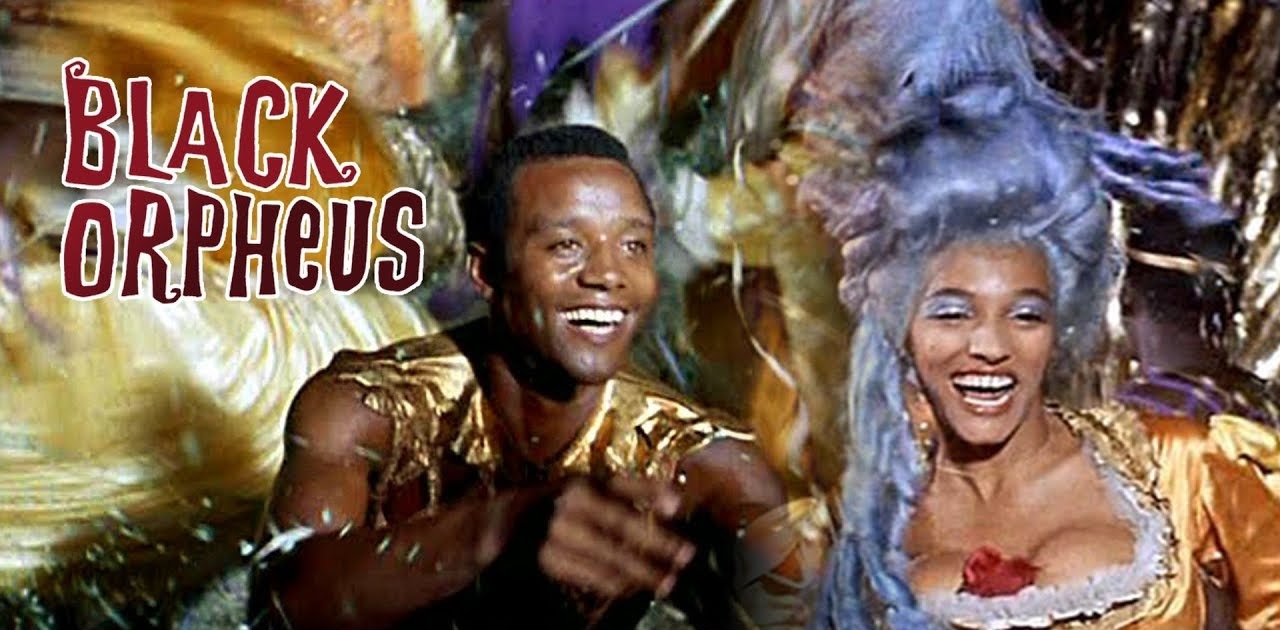
Black Orpheus is a timeless classic film that captivates audiences with its stunning visuals, captivating performances, and enchanting storyline. Directed by Marcel Camus, this 1959 Brazilian masterpiece brings the myth of Orpheus and Eurydice to life against the vibrant backdrop of Rio de Janeiro’s Carnival. The film received critical acclaim and won numerous awards, including the prestigious Palme d’Or at the Cannes Film Festival. With its iconic bossa nova soundtrack and the compelling performances of its cast, Black Orpheus remains a beloved and influential piece of cinema. In this article, we will delve into 30 fascinating facts about Black Orpheus, shedding light on its production, cultural impact, and behind-the-scenes anecdotes. Join us as we journey through the enchanting world of Black Orpheus and uncover the magic behind this cinematic gem.
Key Takeaways:
- Black Orpheus is a captivating movie inspired by a Greek myth, showcasing the beauty of Rio de Janeiro and introducing the world to bossa nova music, making it a timeless cinematic gem.
- The film’s tragic love story and vibrant visuals resonate with audiences, sparking a cultural revolution and leaving a lasting impact on Brazilian cinema and culture worldwide.
The Inspiration
The movie Black Orpheus, directed by Marcel Camus, was inspired by the Greek myth of Orpheus and Eurydice. It is set in modern-day Rio de Janeiro during the Carnival season.
Award-Winning Masterpiece
Black Orpheus won the prestigious Palme d’Or at the 1959 Cannes Film Festival, bringing international recognition to Brazilian cinema.
Cinematic Breakthrough
The film is credited with introducing the world to bossa nova music, which became a global sensation and influenced numerous musicians.
Captivating Soundtrack
Black Orpheus features an enchanting soundtrack composed by Antonio Carlos Jobim and Luiz Bonfá. The music perfectly captures the vibrant spirit of Rio de Janeiro.
Cultural Representation
The movie authentically portrays the Afro-Brazilian culture and highlights the African roots of Brazilian society.
Language Barrier
The characters in Black Orpheus speak Portuguese, making it one of the few foreign-language films to achieve significant commercial success in the United States.
Vibrant Visuals
The movie’s colorful cinematography beautifully captures the lively atmosphere of the Carnival, creating a feast for the eyes.
International Success
Black Orpheus achieved worldwide acclaim and became one of the most successful Brazilian films of all time.
Mythological Symbolism
The story of Orpheus and Eurydice serves as a metaphor for the power of love and the inevitability of death.
Iconic Characters
The characters of Orfeu and Eurídice have become iconic figures in cinema, representing the eternal allure of love and the pursuit of happiness.
Historical Context
Black Orpheus was released during a period of social and cultural transformation in Brazil, reflecting the country’s evolving identity.
Cultural Impact
The film played a significant role in popularizing Brazilian culture worldwide, especially through its portrayal of music, dance, and Carnival traditions.
Tragic Love Story
Black Orpheus tells a tragic love story, where the characters face obstacles, superstition, and the specter of death in their quest for happiness.
Timeless Themes
The film explores universal themes such as love, passion, jealousy, and the fleetingness of life, resonating with audiences across cultures and generations.
Cultural Appropriation Debate
Despite its popularity, the film has faced criticism for its portrayal of Afro-Brazilian culture and its potential to perpetuate stereotypes.
Legacy of Influence
Black Orpheus has inspired numerous filmmakers and artists, leaving a lasting impact on the world of cinema.
Academy Award Win
The film won the Academy Award for Best Foreign Language Film in 1960, solidifying its place in film history.
Brazilian New Wave
Black Orpheus is considered one of the forerunners of the Brazilian Cinema Novo movement, which aimed to create a distinct national cinema.
Symbolic Imagery
The movie is filled with symbolic imagery, such as Orpheus playing his guitar, representing the power of music to transcend boundaries.
Timeless Beauty
Black Orpheus beautifully captures the essence of Rio de Janeiro, showcasing its stunning landscapes, beaches, and vibrant street life.
Tragedy and Hope
The themes of tragedy and hope are interwoven throughout the film, reflecting the complexities of human existence.
International Recognition
Black Orpheus received critical acclaim and gained a large international following, further contributing to the global fascination with Brazilian culture.
Celebrating Carnival
The film provides a mesmerizing depiction of the Rio Carnival, portraying its energy, spirit, and cultural significance.
Boundaries of Reality
Black Orpheus blurs the line between fantasy and reality, creating a mesmerizing cinematic experience.
Timeless Appeal
The film’s timeless appeal lies in its ability to evoke emotions and resonate with audiences, transcending cultural and linguistic barriers.
Artistic Collaboration
Black Orpheus brought together a talented team of artists, including director Marcel Camus, composer Antonio Carlos Jobim, and cinematographer Jean Bourgoin.
Cultural Celebration
The film celebrates the diversity and richness of Brazilian culture, paying homage to its African, Portuguese, and indigenous roots.
Dance and Movement
Black Orpheus showcases captivating dance sequences, bringing the energy and rhythm of Brazilian dance forms to the screen.
Box Office Success
The movie was a commercial success and became one of the highest-grossing foreign-language films of its time.
Enduring Legacy
Black Orpheus continues to be celebrated as a cinematic masterpiece, inspiring viewers and leaving a lasting impression with its enchanting storytelling.
Black Orpheus is a cinematic masterpiece that captivates audiences with its visually stunning portrayal of the Rio Carnival and the timeless love story it tells. Inspired by the Greek myth of Orpheus and Eurydice, the film takes viewers on a journey through the vibrant streets of Rio de Janeiro, where the music of bossa nova fills the air.
Directed by Marcel Camus, Black Orpheus achieved international acclaim, winning the prestigious Palme d’Or at the 1959 Cannes Film Festival and an Academy Award for Best Foreign Language Film. The movie introduced the world to bossa nova music, which became a global sensation and influenced countless musicians.
The film authentically depicts the Afro-Brazilian culture and highlights the African roots of Brazilian society. It showcases the beauty of Rio de Janeiro, with its stunning landscapes, sandy beaches, and colorful streets. The captivating cinematography and vibrant visual imagery create a feast for the eyes.
The tragic love story at the core of the film resonates with audiences, exploring themes of love, passion, jealousy, and the fragility of life. The characters of Orfeu and Eurídice have become iconic figures in cinema, representing the eternal allure of love and the pursuit of happiness.
Black Orpheus not only entertained but also sparked a cultural revolution, putting Brazilian cinema on the map and popularizing Brazilian culture worldwide. It played a vital role in inspiring the Brazilian Cinema Novo movement, which aimed to create a distinct national cinema.
Despite its success, the film has faced criticism for its portrayal of Afro-Brazilian culture and the potential perpetuation of stereotypes. Nevertheless, Black Orpheus continues to be celebrated for its lasting impact on cinema and its ability to transport audiences to the vibrant streets of Rio de Janeiro.
In conclusion, Black Orpheus mesmerizes viewers with its enthralling storytelling, captivating visuals, and beautiful music. It remains a timeless cinematic gem, embodying the spirit and essence of Brazilian culture.
Conclusion
In conclusion, Black Orpheus is a groundbreaking film that has left a lasting impact on the world of cinema. With its captivating storyline, mesmerizing visuals, and iconic soundtrack, the movie has carved its place in history. The fusion of Brazilian culture and Greek mythology creates a unique and unforgettable experience for viewers.Directed by Marcel Camus, Black Orpheus beautifully captures the vibrant spirit of Carnival in Rio de Janeiro. The film showcases the power of love and the triumph of the human spirit amidst the harsh realities of life. It has inspired countless filmmakers and continues to be celebrated for its artistic vision.Whether you are a fan of Brazilian cinema, a lover of mythology, or simply looking for a visually stunning and emotionally engaging film, Black Orpheus is a must-watch. Its universal themes and timeless appeal make it a true masterpiece that will continue to be cherished for generations to come.
FAQs
Q: What is the story of Black Orpheus?
A: Black Orpheus is a retelling of the Greek myth of Orpheus and Eurydice, set in the vibrant city of Rio de Janeiro during Carnival. It follows the love story between Orpheus, a talented musician, and Eurydice, a country girl who comes to the city. The film explores themes of love, fate, and the power of music.
Q: Who directed Black Orpheus?
A: Black Orpheus was directed by Marcel Camus, a French filmmaker. His work on the film garnered critical acclaim and earned him an Academy Award for Best Foreign Language Film in 1960.
Q: What is the significance of the film’s soundtrack?
A: The soundtrack of Black Orpheus, composed by Antonio Carlos Jobim and Luiz Bonfá, played a pivotal role in popularizing bossa nova, a genre of Brazilian music. The film’s music became a global sensation, introducing audiences around the world to the captivating rhythms and melodies of Brazil.
Q: Did Black Orpheus win any awards?
A: Yes, Black Orpheus received numerous accolades, including the prestigious Palme d’Or at the 1959 Cannes Film Festival. It also won an Academy Award for Best Foreign Language Film and a Golden Globe for Best Foreign Language Film.
Q: Does Black Orpheus showcase Brazilian culture?
A: Yes, Black Orpheus is renowned for its authentic portrayal of Brazilian culture, particularly the vibrant traditions and festivities of Carnival in Rio de Janeiro. The film captures the essence of the city’s music, dance, and colorful costumes, offering a glimpse into the rich cultural heritage of Brazil.
Q: Is Black Orpheus a must-watch for film enthusiasts?
A: Absolutely! Black Orpheus is revered as a classic in world cinema and is highly recommended for film enthusiasts. Its stunning visuals, captivating performances, and thought-provoking themes make it a masterpiece worth experiencing.
Was this page helpful?
Our commitment to delivering trustworthy and engaging content is at the heart of what we do. Each fact on our site is contributed by real users like you, bringing a wealth of diverse insights and information. To ensure the highest standards of accuracy and reliability, our dedicated editors meticulously review each submission. This process guarantees that the facts we share are not only fascinating but also credible. Trust in our commitment to quality and authenticity as you explore and learn with us.


